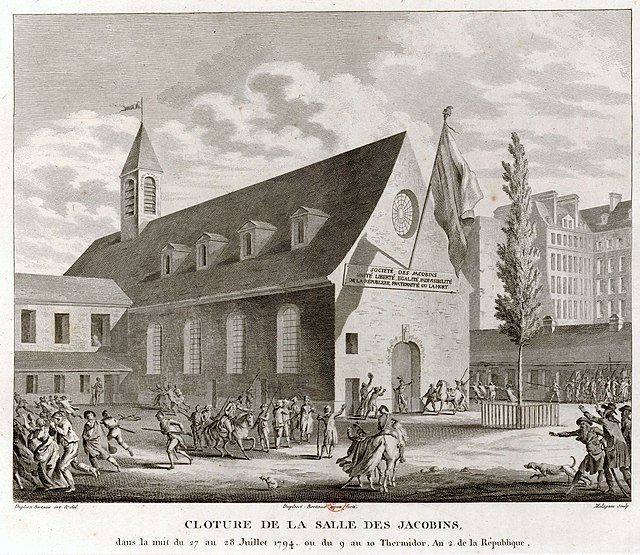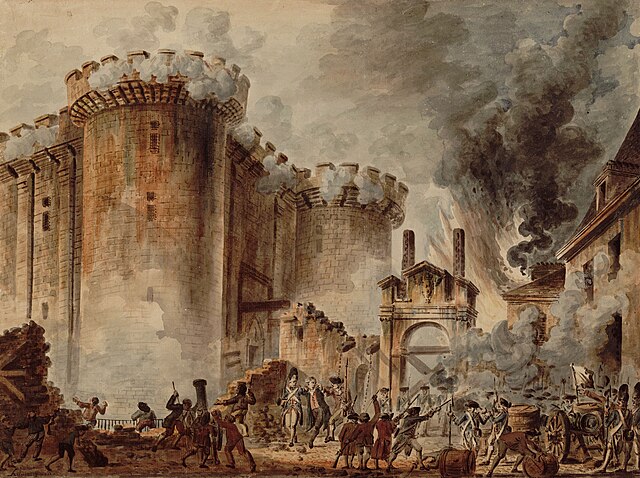The Society of the Friends of the Constitution, renamed the Society of the Jacobins, Friends of Freedom and Equality after 1792 and commonly known as the Jacobin Club or simply the Jacobins, was the most influential political club during the French Revolution of 1789. The period of its political ascendancy includes the Reign of Terror, during which well over 10,000 people were put on trial and executed in France, many for political crimes.
The Jacobin Club was in the Rue Saint-Honoré, Paris.
Seal of the Jacobin Club from 1789 to 1792, during the transition from absolutism to constitutional monarchy
Engraving "Closing of the Jacobin Club, during the night of 27–28 July 1794, or 9–10 Thermidor, year 2 of the Republic"
The French Revolution was a period of political and societal change in France that began with the Estates General of 1789, and ended with the coup of 18 Brumaire in November 1799 and the formation of the French Consulate. Many of its ideas are considered fundamental principles of liberal democracy, while its values and institutions remain central to modern French political discourse.
The Storming of the Bastille, 14 July 1789
Caricature of the Third Estate carrying the First Estate (clergy) and the Second Estate (nobility) on its back
Le Serment du Jeu de paume by Jacques-Louis David (c. 1791), depicting the Tennis Court Oath
The Storming of the Bastille on 14 July 1789; the iconic event of the Revolution, still commemorated each year as Bastille Day







